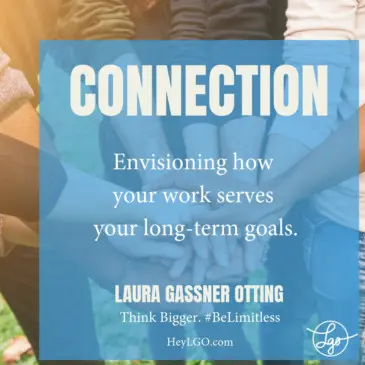We are distracted. As slaves to the Tyranny of Urgency, we mistake being busy and stressed for important work. We run on the hamster wheel, doing more work, but not necessarily work that matters. Don’t believe me? Try to describe your biggest professional achievements this year, the ones of which you are most proud.
No, wait. Start again.
You probably started by using the word we, as in we achieved this or we succeeded at that. For this exercise, however, I want you to ignore the manners your mama taught you and be horrifyingly self-centered. (Don’t worry, I won’t tell. Pinky promise!)
Start again, using the word I, and answer the following questions: What goals would never have been accomplished but for the fact that you, specifically you, were in that job? Can you draw a clear, distinct line from your daily work to your monthly, quarterly, or yearly goals? And how does that work impact the calling you wish to serve?
If you can’t answer these questions, you probably don’t have—or at least don’t feel as though you have—connection. And without understanding how your work connects to that calling you hold dear, you will be frustrated. Becoming limitless demands connection.
Why do we keep running on that hamster wheel, working harder and harder but not feeling like we are making progress? And why do we put our nose to the grindstone in pursuit of completing our to-do list or emptying our inbox when those things have nothing to do with the larger strategic imperatives weighing down on us? Why do we keep acting when our actions are so obviously not connected to fulfilling our calling?
It all starts with a lack of perspective on the actual problem we are trying to solve. And we gain perspective only when we step back and reevaluate how we connect with—and through—our work.
Not all of us have that satisfying sense that the tasks we perform daily connect to the cause we want to serve, the problem we want to solve, the company we want to build. It’s why we don’t feel guilty about calling in sick or punching out a little early to beat traffic. It is no shock to learn American workers are less engaged in their jobs every year. Yet each of us, in each job we fill, is part of something larger: a box on an organizational chart that has local, regional, and perhaps even national and global goals.
So the work you do might very well matter; perhaps you just don’t have the sightlines that allow you to visualize the connection.



